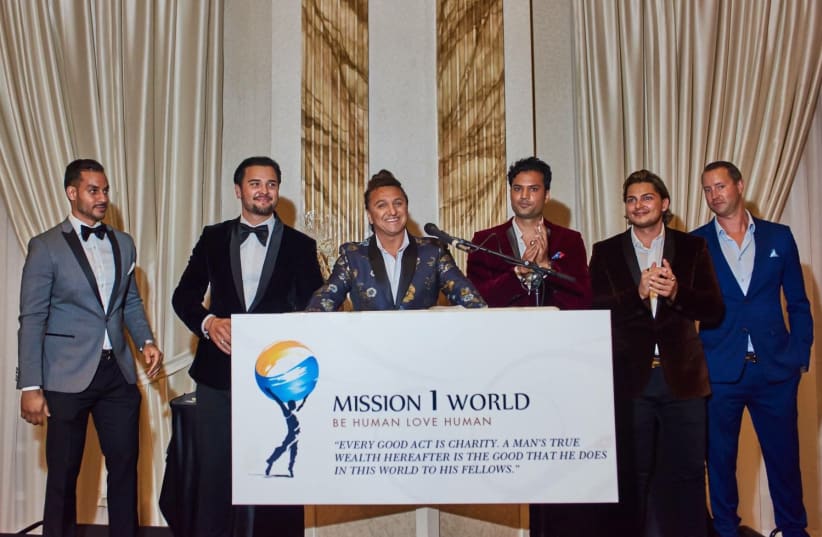If you're reading this, you probably have access to clean drinking water. And in all likelihood, it's difficult for you, me, and many like us, to think that water is indeed scarce. Water should not be a privilege. It's a basic human right. Several third-world countries have millions of people who don't have access to clean drinking water. However, there's hope for them. Mission 1's Masood Wahab, an Indian-born philanthropist along with ten of his friends has decided to pump clean water into the houses of the poor. Here's how he hopes to make a difference.
All good stories begin with a realization that cannot be ignored. Masood was a well-established real estate agent who was looking for meaning in life. A trip to Europe granted him that. He says, “I was living the high-life without any element of real life in it. It was all about running around the clock, letting people walk away with my accomplishments, and feeling a constant sense of emptiness gnawing at my soul. I had to get away from work to get away from the man I was becoming. It was during one of those travels to Europe when I saw a different aspect of reality. I’ve had my share of difficulties but nothing compared to what I saw there. I saw people dying, not of thirst, but water. It was mind-boggling. The very thing that’s meant to sustain us was turning against us. It’s probably what depression in the 30s looked like in America. There were sad faces everywhere and fear was the writing on the wall. I couldn’t turn my eyes away. I felt driven to do something about what I saw.”
Masood did not forget the impact that raw poverty and lack of access to clean drinking water have on people. He got together with ten of his closest friends who wanted to make an impact. They pooled their resources together, and Mission 1 was founded. Taking us through their Mission Purify campaign, Masood says, "Mission Purify is an act of faith and genuine work in the small villages of Pakistan. Our goal is to control the dirty water epidemic that has made many villages there unfit to live in. More than 33% of deaths are water-related, which means every time you drink the groundwater, bathe in it or use it for cooking, you are rolling the dice and staking your life. So, in honor of their resilience and a hope to restore their fundamental human right, we set up purification systems in schools, hospitals, orphanages, and more. These safe water systems take away the killer enzymes from water and turn it into clean drinkable water. The joy we saw on the faces of little children as they held high bottles of clean water was beyond description, equal only to the relief we felt in doing what we have come to consider our duty."
Statistics indeed paint a grim picture of the situation in Pakistan where only 20% of the population has access to clean drinking water and the rest are left at the mercy of Mother Nature. It’s one of those stories which remain hidden till someone comes along and instead of twitching their noses or letting out well-meaning sighs decides to see what's hidden under the carpet. Apart from Mission Purify, Mission H20 is another initiative aimed at bringing clean tap water to small villages in Pakistan. He says, "Mission H20 is all about digging up wells in rural Pakistan. Owing to the land conditions, water aquifers are found hundreds of feet below ground level. This is also an employment opportunity for small local businesses that are employed to do the digging. The digging is followed up with the installation of solar panels. These solar panels, in some way, modernize the archaic wells, where it takes away the need to pull water manually.
A good deed goes a long way because it often comes together with many-a-promises that are yet to unfold. How far can clean drinking water take the villagers of Pakistan remains to be seen. But it's clear that thanks to the efforts of Mission 1, Masood Wahab, and his team, the tide in some of the worst areas of Pakistan is beginning to turn. Masood continues to lead by example. His philanthropic efforts have helped him garner a stellar reputation. He firmly believes that philanthropy is the foundation of building a bright future. Governments, businesses and people in positions of power must step up and take responsibility. If humanity unites in its efforts, then the world can indeed become a better place. Masood is currently looking to expand his reach beyond Pakistan and support additional causes that need immediate action.
This article was written in cooperation with Masood Wahab
